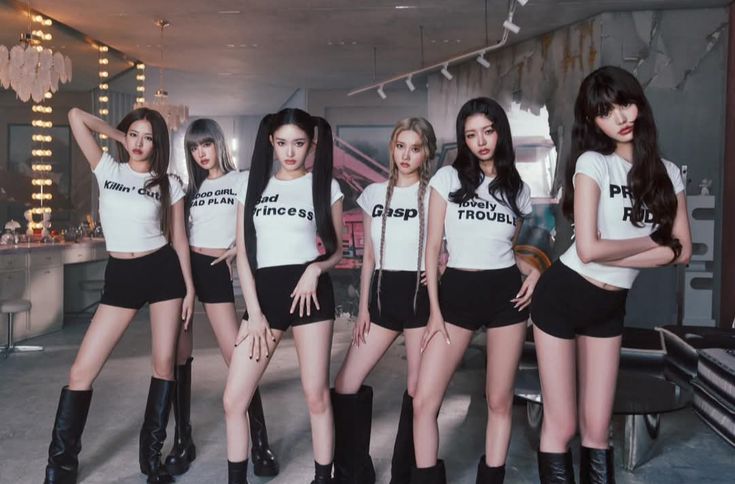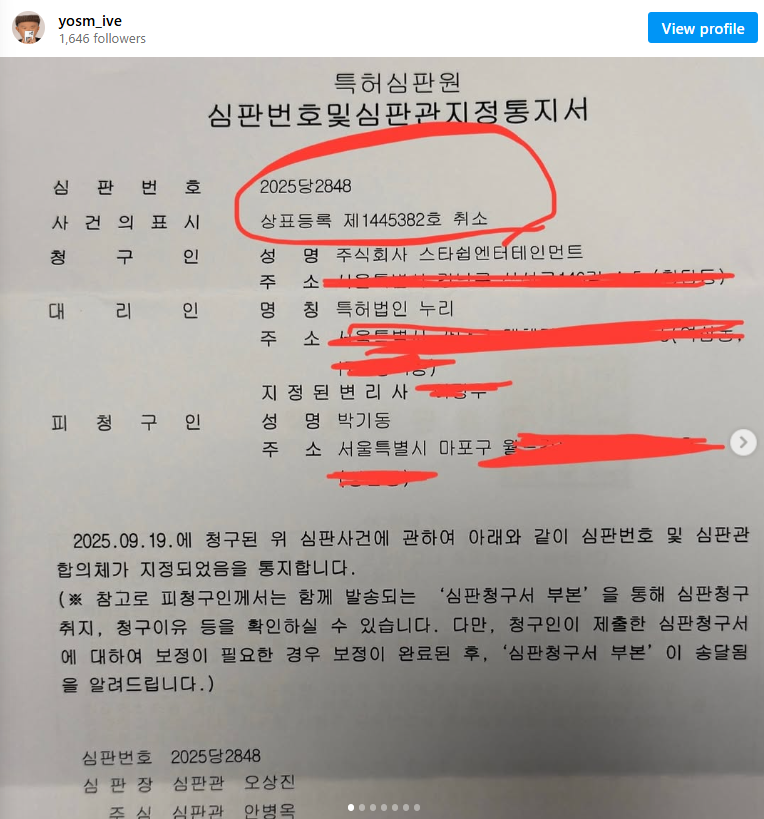Starship Entertainment has officially withdrawn a legal move tied to the “IVE” name—blaming an independent trademark agent for initiating the action without company approval—and apologized for the confusion. The reversal followed swift backlash once a Seoul leather-goods workshop publicized that its long-held “IVE” trademarks were being targeted.
What happened
-
Sep 30–Oct 1, 2025 (KST): A small leather workshop owner revealed that a cancellation petition had been filed against his existing “IVE” registrations, igniting online criticism that Starship was strong-arming a small business.
-
Oct 2, 2025: Starship issued an official statement: the filing was unilaterally submitted by a legal agent without prior consultation; upon learning this, the company reviewed the process and withdrew the case.
-
Oct 3, 2025: Coverage across K-media/K-pop outlets confirmed the withdrawal and apology, noting Starship’s pledge to strengthen internal controls.
Why this blew up so fast
-
Name collision, different classes: The workshop’s “IVE” marks precede the idol group and appear tied to leather goods—distinct from entertainment services—yet a cancellation bid reads to fans as overreach. Even if legally arguable, it looked like a big company squeezing a small registrant.
-
Fandom optics: IVE is a top-tier brand; any hint of “bullying” small creators triggers immediate scrutiny and viral spread in Korean forums and global socials.
-
Procedural surprise: Starship’s explanation—that a third-party agent acted independently—raised governance questions: How could a filing proceed without corporate sign-off?
Legal Context(plain English)
-
Trademarks are class-based: Two parties can hold the same word mark in different goods/services classes if there’s no likelihood of consumer confusion. Conflicts arise when one side argues reputation “dilution” or a risk of confusion across categories. This is often debated in cancellation trials and oppositions. (Context drawn from standard trademark practice; specific case details from reports.)
-
Cancellation petition vs. coexistence: Instead of seeking coexistence agreements or carve-outs, the filing went straight to cancellation—an aggressive first step that, once public, became a PR crisis.
Starship’s damage control playbook
-
Rapid withdrawal & apology: The company emphasized it stopped the action promptly and apologized for confusion.
-
Attribution to external agent: Starship said the agent acted without approval—a message aimed at separating corporate intent from the filing itself.
-
Promise of stronger oversight: Multiple outlets noted a commitment to prevent similar incidents—implicitly, better controls over outside counsel/agents.
Business & brand takeaways (for labels and fandom watchers)
-
Guardrails for agents: Entertainment companies should implement dual-signoff systems and matter-opening protocols with outside IP firms to prevent unilateral filings that can escalate into reputational risks overnight. (Inference based on reported events.)
-
Start with coexistence: When a prior registrant operates in a non-overlapping class, lead with negotiation, consent agreements, or field-of-use limitations before litigation. It’s cheaper—and kinder to the brand story.
-
Crisis triage 101: Swift acknowledgement, clear timeline, specific corrective actions, and monitored follow-through help contain blowback. Starship hit the key notes here after the filing surfaced.
What to watch next
-
Formal docket status: While media confirm withdrawal, fans will watch for any additional filings or clarifications with the IP office.
-
Coexistence or MOU: A visible understanding between Starship and the workshop (even a brief statement) would signal a durable resolution.
-
Industry ripple effect: Expect other labels to audit their trademark pipelines—to avoid “agent-acted-alone” headlines.
Bottom line: The “IVE” dispute became a case study in how quickly IP strategy can collide with public sentiment. Starship’s retreat—pinning the move on an overzealous agent and promising better oversight—may steady the narrative, but the incident will likely reshape how K-pop companies police their brands in the public eye.




Share:
Between Honesty and Rumor: How Jimin’s Quiet Words Sparked a Loud Debate
From Sketch Surprise to Late-Night Spotlight: KPop Demon Hunters Vocal Trio Storms SNL, Then Debuts “Golden” Live on The Tonight Show